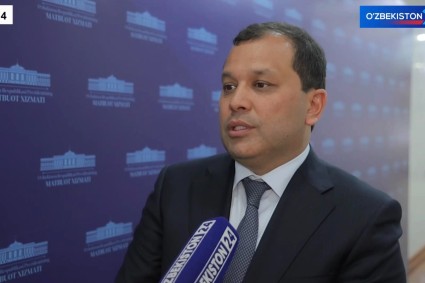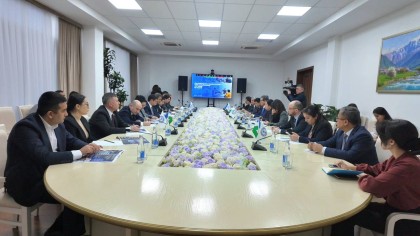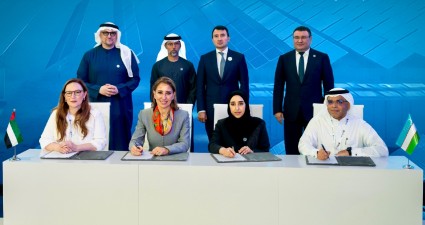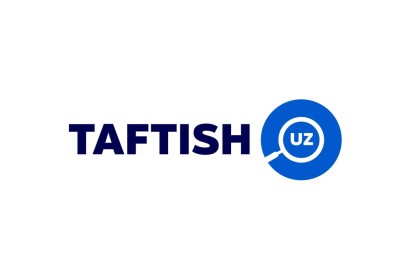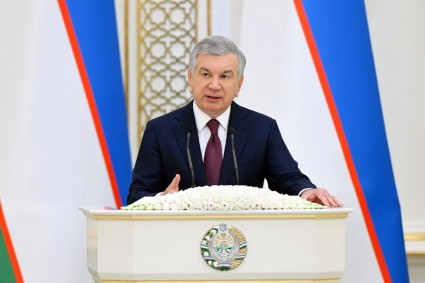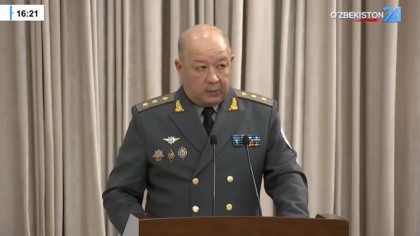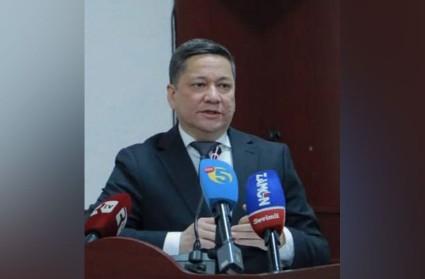The chairman of the Commerce and Industry Chamber Davron Vakhabov in an interview to the Uzbekistan 24 channel called the president's decision to adopt a zero VAT rate on agricultural goods historic and stressed that it creates all the conditions for transparent and efficient work of farmers and processing firms.
"Of course, this move is of great importance for all businesses, and especially for those engaged in the cultivation, processing, sale on the domestic market and exports of fruits and vegetables. This decision will bring serious results and tangible outcomes," Vakhabov emphasized.
According to him, with this measure, the president created all the conditions for transparency for doing business:
"If we talk about examples, according to data for 2024, the volume of agricultural goods in the country is 467 trillion soums. For comparison: the household services sector accounts for only 2 trillion soums, or 0.4%. Of the 303 thousand units of agricultural machinery, 44% are in private hands, 56% are in legal entities. Fuel and maintenance costs are the same 0.4%, which indicates a deeply rooted mechanism for working with cash. This is certainly the wrong approach - both from the point of view of the state and from the point of view of tax revenues." As an example, Vakhabov cited one farm that declared only 12 tons of rice on an area of вАЛвАЛ304 hectares at a price of 2,100 soums per kg.
He expressed confidence that now farmers would begin to switch from cash to cashless payments - including when buying fertilizers and other resources.
"Now, after the exemption from 12% VAT, interest in re-sowing on lands freed up after cotton and grain will increase sharply... Previously, farmers had no incentive to do this because they could not return the VAT paid upon purchase - neither on carrots nor on potatoes. Because of this, they preferred to work for cash, evading taxation," said the chairman of the Chamber of Commerce and Industry.
By presidential decree, farmers shall be waived from any risks, including administrative liability. "And those who continue to work 'in the dark' will expose themselves to serious risks," he stressed.
According to Vakhabov, about 90% of cattle are kept in private household plots, of which 89% of cows are also owned by the public. Of the 11 million tons of vegetables produced in the country, 57% are grown in household plots.
"Now a single industrialized chain is being built between household plots and farms. This will increase the investment attractiveness of the agricultural sector by 5-6 times, expand the range of goods and reduce import volumes," he said.
The chief of the Chamber stressed that Uzbekistan still imports apples, including from Iran, although they can be grown domestically. "If farmers understand that this is profitable, they themselves will begin to actively plant these crops," he is confident.
He also said that the Chamber of Commerce and Industry, the Tax Committee and the Ministry of Agriculture had taken on the task of explaining the reforms:
"On the directives of the president, we will report monthly on which industries benefit from the zero VAT rate, which agricultural goods participate in this system, and what results farmers, dehkans and the processing industry achieve."
In conclusion, Vakhabov stressed that "for the first time in 34 years, agriculture was being given such a large-scale opportunity."
At the government meeting chaired by the president Thursday, the president had announced that from January 1, 2026, the VAT rate for farmers when selling their goods will be zero. The benefit will apply to fruits, vegetables, meat, milk, eggs and other agricultural goods, with the exception of cotton and grain.
The benefit will cover almost half of agricultural producers and will allow businesses to save up to 1 trillion soums, the Ministry of Agriculture and the Tax Committee said.

